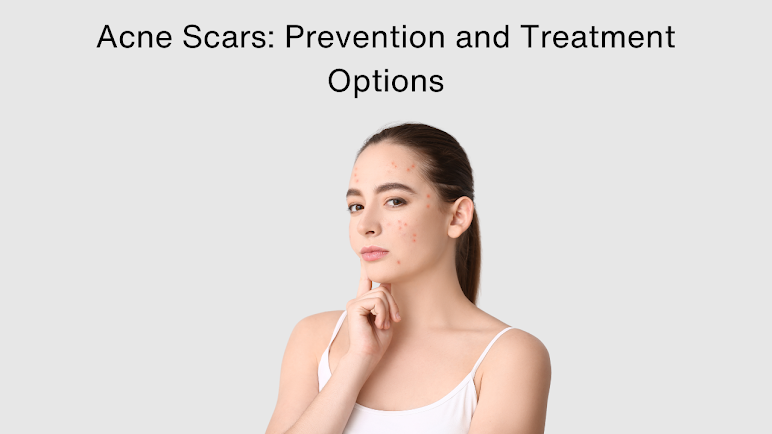Acne Scars: Prevention and Treatment Options

Welcome to the Gleuhr skin and dental clinic in Chandigarh and we provide best skin, hair and dental treatment in tricity and we also sell natural skin and hair products in all over world. We have best skin specialist in Chandigarh who are highly educated and dedicated to their work. https://clinic.gleuhr.com/

In the eternal quest for the elusive fountain of youth, antioxidants have emerged as powerful allies in the fight against aging. From skincare products to dietary supplements, antioxidants have garnered widespread attention for their purported anti-aging properties. But what exactly are antioxidants, and how do they combat the signs of aging? In this comprehensive exploration, we delve into the science behind antioxidants and their role in promoting youthful vitality.

Understanding Antioxidants: At its core, aging is a complex biological process influenced by a myriad of factors, including genetics, lifestyle choices, and environmental stressors. One of the key contributors to aging is oxidative stress, a condition characterized by an imbalance between free radicals and antioxidants in the body. Free radicals, highly reactive molecules generated during normal
metabolic processes or in response to external stressors such as UV radiation and pollution, can wreak havoc on cells by damaging DNA, proteins, and lipids. This damage, known as oxidative damage, contributes to the aging process by accelerating cellular degeneration and promoting the formation of wrinkles, fine lines, and other visible signs of aging.
Enter antioxidants, the body's natural defense mechanism against oxidative stress. Antioxidants are compounds that neutralize free radicals, thereby preventing or mitigating the cellular damage associated with oxidative stress. They accomplish this by donating electrons to stabilize free radicals, effectively halting their harmful chain reactions. Common antioxidants include vitamins C and E, beta-carotene,
flavonoids, and polyphenols, which are found in a variety of foods such as fruits, vegetables, nuts, and seeds.
Skin Health: Perhaps the most
visible manifestation of aging is seen in the skin, with wrinkles, sagging, and
age spots serving as telltale signs of advancing years. Antioxidants play a
crucial role in maintaining skin health by protecting against UV-induced
damage, promoting collagen synthesis, and enhancing skin barrier function.
Vitamin C, in particular, is revered for its ability to brighten the
complexion, fade hyperpigmentation, and stimulate collagen production,
resulting in firmer, more youthful-looking skin. Similarly, vitamin E acts as a
potent moisturizer, replenishing skin lipids and defending against oxidative
stress-induced inflammation.
Cellular Repair and Regeneration:
Aging is not solely confined to the skin; it affects every cell and tissue in
the body. Antioxidants support cellular repair and regeneration by scavenging
free radicals and reducing oxidative damage to cellular components. This
promotes longevity at the cellular level and helps to maintain optimal organ
function, thus contributing to overall health and vitality.
Cognitive Function: As we age,
cognitive decline becomes a growing concern, with conditions such as
Alzheimer's disease and dementia posing significant challenges to the aging
population. Antioxidants, particularly flavonoids and polyphenols found in
foods like berries, nuts, and green tea, have been shown to protect against
neurodegenerative diseases by reducing inflammation, improving blood flow to
the brain, and enhancing neuronal communication. These neuroprotective effects
may help preserve cognitive function and stave off age-related cognitive
decline.
Cardiovascular Health: Heart disease
remains the leading cause of death globally, with aging being a major risk
factor for its development. Antioxidants play a vital role in maintaining
cardiovascular health by protecting against oxidative damage to blood vessels,
reducing inflammation, and lowering cholesterol levels. For example, the
polyphenols found in red wine have been credited with conferring
cardioprotective benefits by promoting vasodilation and inhibiting the
formation of arterial plaques.
Longevity: While the quest for
eternal youth may be the stuff of legend, emerging research suggests that
antioxidants may indeed exert a modest influence on lifespan. Studies conducted
in model organisms such as worms, fruit flies, and mice have demonstrated that
antioxidant supplementation can extend lifespan by reducing oxidative stress
and delaying age-related decline. While the extrapolation of these findings to
humans remains a topic of debate, there is growing optimism that antioxidants
may hold the key to unlocking the secrets of longevity.
Practical Considerations and Future Directions: While the potential benefits of antioxidants in anti-aging are compelling, it's essential to approach their use with caution and moderation. Excessive intake of antioxidants, whether through supplements or fortified foods, can disrupt the delicate balance of oxidative stress and undermine the body's natural defense mechanisms. Moreover, the efficacy of
antioxidants may vary depending on factors such as dosage, bioavailability, and individual genetics.
Looking ahead, ongoing research efforts aim to elucidate the precise mechanisms by which antioxidants
exert their anti-aging effects and to identify novel antioxidant compounds with enhanced bioactivity and specificity. Additionally, there is growing interest in personalized approaches to anti-aging interventions, wherein antioxidant therapies are tailored to individual genetic predispositions and lifestyle factors.
Conclusion: In the timeless quest for youth and vitality, antioxidants have emerged as potent allies in the fight against aging. By neutralizing free radicals, reducing oxidative stress, and supporting cellular health, antioxidants offer a multifaceted approach to promoting longevity and preserving youthful vigor. Whether in the form of dietary supplements, skincare formulations, or wholesome foods, integrating antioxidants into our daily regimen holds the promise of a brighter, healthier future as we embrace the journey of aging with grace and resilience.
Comments
Post a Comment